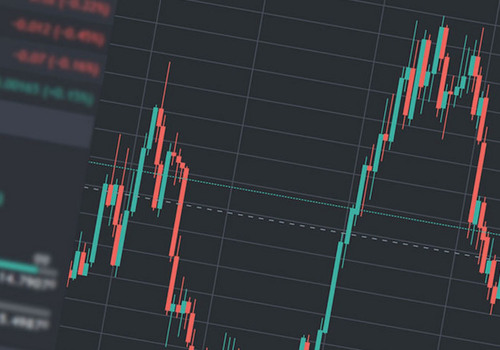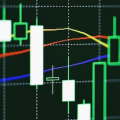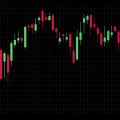Forex trading can be an exciting and potentially profitable endeavor. However, it's essential to understand the various factors that affect your trading decisions. One such factor is the spread. In this article, we will delve into the concept of spread in Forex trading, its significance, and strategies to minimize its impact.
Definition of Spread
In Forex trading, the spread refers to the difference between the bid price and the ask price of a currency pair. It represents the cost of executing a trade and is typically measured in pips, which is the smallest unit of price movement in Forex.
Understanding Spread
What Does Spread Represent?
To understand the spread better, let's consider an analogy. Imagine you are buying a house, and the seller quotes two prices: the price they are willing to sell for and the price they are willing to buy for. The difference between these two prices represents the spread.
Similarly, in Forex trading, the bid price is the price at which the market is willing to buy a currency pair, while the ask price is the price at which the market is willing to sell a currency pair. The difference between the bid and ask price is the spread.
How Spread Affects Forex Trading
The spread plays a crucial role in Forex trading. It directly impacts the profitability of your trades. When you open a trade, you start with a small loss equal to the spread. For example, if the spread is 2 pips and you enter a trade, you will be 2 pips in the negative right from the start.
Additionally, the spread affects your breakeven point. Suppose you enter a long trade and the spread is 2 pips. To break even, the market needs to move at least 2 pips in your favor. Therefore, it's important to consider the spread when setting profit targets and stop-loss levels.
Types of Spreads
There are different types of spreads offered by Forex brokers. Understanding these spreads will help you make informed decisions while choosing a broker and executing trades.
Fixed Spread
A fixed spread remains constant under normal market conditions. It does not change regardless of the market volatility or liquidity. Traders often prefer fixed spreads as they provide more certainty and transparency in trading costs.
Variable Spread
Unlike a fixed spread, a variable spread fluctuates depending on market conditions. It tends to widen during times of high volatility or low liquidity. While variable spreads may be lower during normal market conditions, they can significantly increase during news releases or market events.
Commission-based Spread
Some brokers charge a commission in addition to the spread. This commission-based model allows brokers to offer tight spreads while generating revenue from the commission. Traders who frequently execute trades may find this model more cost-effective.
Strategies to Minimize Spread Impact
While the spread is an inherent cost in Forex trading, there are strategies you can employ to minimize its impact on your overall profitability.
Trade During High Liquidity
During periods of high liquidity, spreads tend to be narrower. Liquidity refers to the volume of trading activity in the market. Major trading sessions, such as the overlap between London and New York sessions, offer higher liquidity and tighter spreads.
Choose Brokers with Competitive Spreads
Not all brokers offer the same spreads. It's crucial to compare the spreads offered by different brokers and choose the one that provides competitive rates. However, keep in mind that the spread should not be the sole determining factor when selecting a broker. Consider other aspects such as regulation, trading platforms, and customer support.
Use Limit and Stop Orders
Limit and stop orders can help you enter or exit trades at pre-determined price levels. By utilizing these types of orders, you can ensure that your trades are executed automatically when the market reaches your specified price. This reduces the risk of adverse price movements due to spread widening.
Consider Scalping
Scalping is a trading strategy where traders aim to profit from small price movements. Since scalpers frequently open and close trades within a short time frame, the impact of the spread is reduced. However, scalping requires a disciplined approach and may not be suitable for all traders.
Conclusion
In conclusion, the spread is an integral aspect of Forex trading. It represents the difference between the bid and ask price of a currency pair and affects the profitability of your trades. By understanding the concept of spread and employing effective strategies, you can navigate the Forex market more efficiently and improve your trading results.
What is the difference between bid and ask price?
The bid price is the price at which the market is willing to buy a currency pair, while the ask price is the price at which the market is willing to sell a currency pair. The difference between these two prices is known as the spread.
Can spread widen during news releases?
Yes, spreads can widen during news releases or significant market events. Increased volatility and reduced liquidity during these times often lead to wider spreads.
How does spread vary between currency pairs?
The spread can vary between different currency pairs. Major currency pairs, such as EUR/USD, often have tighter spreads due to their high liquidity. On the other hand, exotic currency pairs may have wider spreads.
Do all brokers offer the same spreads?
No, different brokers offer different spreads. It's important to compare spreads among brokers to ensure you are getting competitive rates. However, remember to consider other factors such as regulation and trading conditions.
Can I trade Forex without paying spread?
No, spread is an inherent cost of Forex trading. However, some brokers may offer accounts with lower spreads or alternative fee structures, such as commission-based spreads, to cater to specific trading needs.
By following the guidelines provided in this article, you can now better understand the concept of spread in Forex trading and its impact on your trading decisions. Remember to consider the type of spread offered by your chosen broker, implement effective strategies to minimize spread impact, and stay updated on market conditions. Start your Forex journey with confidence and make informed trading choices.












Leave Reply